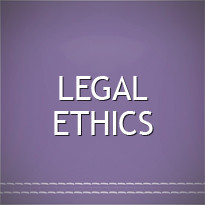G.R. No. L-29015 – 159-A Phil. 111 – 63 SCRA 493 – Legal Ethics – Duty of Counsel to Be Adequately Prepared
Geremias Pajarito, Samuel Pajarito, Felipe Malunsing, Alfredo Rivera, and Manuel Villegas were accused of murder. After the preliminary investigation, the murder charges against the Pajaritos were dropped. During arraignment, Felipe and Alfredo were represented by Atty. Geronimo Pajarito. Manuel had no lawyer but Atty. Geronimo was appointed as his counsel de oficio. Manuel however told the court and Atty. Geronimo that he has a counsel of his own. When the court asked Atty. Geronimo if he wanted to confer with Manuel before proceeding with the pre-trial, Atty. Geronimo remarked “I think I know the case.”
The trial proceeded. The prosecution presented its evidence. The court did not ask Manuel where his supposed lawyer was and so Atty. Geronimo was never discharged as counsel de oficio.
When it was the turn of the defense, Atty. Geronimo presented Felipe and Alfredo but he did not present Manuel to the witness stand. After trial, Felipe and Alfredo were acquitted but Manuel was convicted.
Now, Atty. Pablito Pielago [presumably Manuel’s true lawyer and supposed lawyer from the onset?] questioned the conviction as he presented the above irregularities. He said that Manuel is an unlettered man and he does not know the intricacies of court proceedings hence Atty. Geronimo should have been vigilant in representing him in court. Pielago now wants the reversal of the conviction.
ISSUE: Whether or not the conviction should be reversed.
HELD: Yes, for there is a gross violation of Manuel’s constitutional rights. The Supreme Court noted that it is not enough that a counsel de oficio was appointed, especially so as here, where the accused had indicated that he wanted a lawyer of his choice, a decision prompted moreover by the fact that he had lost confidence in the member of the bar thus designated. Nor is it to manifest respect for this right if the counsel de oficio thus named, instead of conferring with the accused, would just blithely inform the judge that he was already fully prepared for his exacting responsibility. It was unintended, of course, but the result could not rightly be distinguished from pure travesty. Here, Manuel was never asked where his counsel was. He was never asked as to why he’s not taking the witness stand. Manuel was an unlettered man and the court could have verified, by inquiring, if he truly understood what is going on with the trial. The Supreme Court reversed the conviction but considering the gravity of the offense charged, it ordered a new trial.


